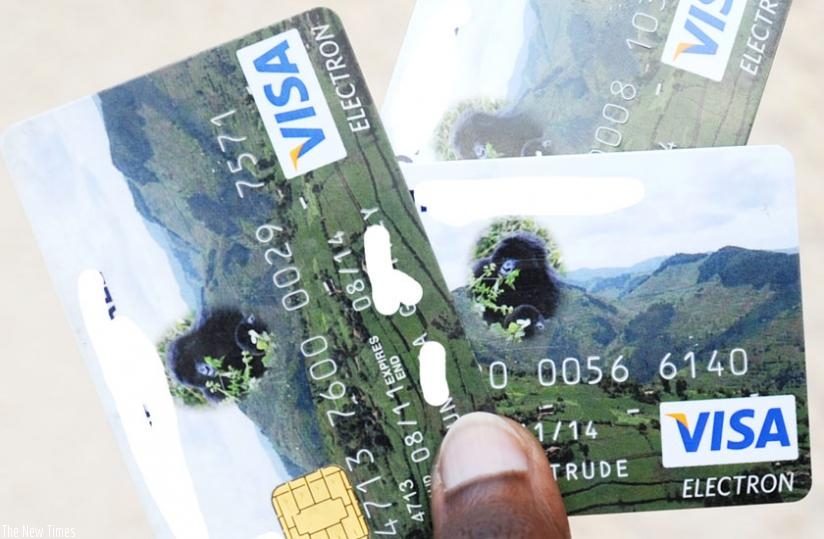On opening an account at a local bank, Valence Twahirwa, a fresh graduate, applied for a debit card to be able to tap into the perks of digital payments solutions such as the promised convenience in making payments.


On opening an account at a local bank, Valence Twahirwa, a fresh graduate, applied for a debit card to be able to tap into the perks of digital payments solutions such as the promised convenience in making payments.
However, nearly four weeks after applying for the card, he is yet to receive it. As a result, his quest to be part of a digital economy has been held back by frustrating delays.
On inquiry from his peers, Twahirwa found that his case was not unique across banks after applications for a debit cards; clients say the wait at times up to eight weeks or so to acquire the vital e-Banking cards.
This is at a time when citizens are being urged by the National Bank of Rwanda to use digital platforms such as visa-enabled cards.
Rwanda is moving toward a cashless economy to tap into the convenience of easy access to one’s accounts or not dealing with hard cash.
In other markets in the region, some banks issue the cards on opening of an account or begin processing it as a client opens an account. This has been found to increase the level of uptake of the cards.
Local bankers seek solutions
On the local scene, however, the issue of the delay also came up at a recent Rwanda Banker’s Association meeting following concerns expressed by bank clients across the country.
According to the vice chairperson of the association, Edigold Monday, who is also the managing director of Crane Bank Rwanda, the body is looking into the concerns after it came up in their recent meeting.
The bankers gave themselves time to look into the magnitude of the challenge, causes and impacts to be able to come up with an intervention.
According to Monday, although some of the banks owned up to the challenge, they did not have concrete statistics on the number of complaints or the exact period taken.
On reconvening in their next meeting, Monday said they will discuss the issue and use the statistics available to see ways to get past it.
The most common excuse is that most banks print their cards outside the country, hence the delay before clients can access them but Monday said that there were firms in the country that could handle the task.
Bank of Kigali chief operations officer Lawson Naibo said among the reasons for the time frame clients were accustomed to was the use of third party processors as the technology used in printing and production was not readily available in the country.
The stringent process of getting certifications from the various cards’ associations around the world is also another reason that Naibo cited for Bank of Kigali’s delay in having its own production unit.
"Just like money, card printing involves a lot of security considerations that require the strictest and tightest controls to be in place before any bank can embark on production,” Naibo said, adding that there are also stringent certifications to be granted by card associations around the world.
Moving forward, he noted that the bank has since made strides and is set to run its own in-house card production that would significantly reduce the time frame.
Naibo said with an in-house production system, the process will be shortened to not more than three working days for debit cards.
Experts say an increase in the number of debit cards in use in the Rwandan market coupled with access to point-of-sale devices in business enterprises would significantly facilitate in the roll out of a cashless economy.
According to the recently issued monetary policy and financial stability statement, as of December 2015, there were only slightly more than 650,000 cards in use in the Rwandan market.
This, experts say, is a low figure and could also contribute to the delay in acquiring cards.
Previously, debit cards were mostly used for withdrawal of cash from automated teller machines, but in the recent past, they have been increasingly embedded with visa system to enable point of sale in retail outlets by traders through point-of-sale machines facilitating clients in making cashless payments.
The experts have also called for reduction in the cost of the cards to incentivise further uptake as well as an introduction of incentives for traders who promote the use of cashless systems.
editorial@newtimes.co.rw


